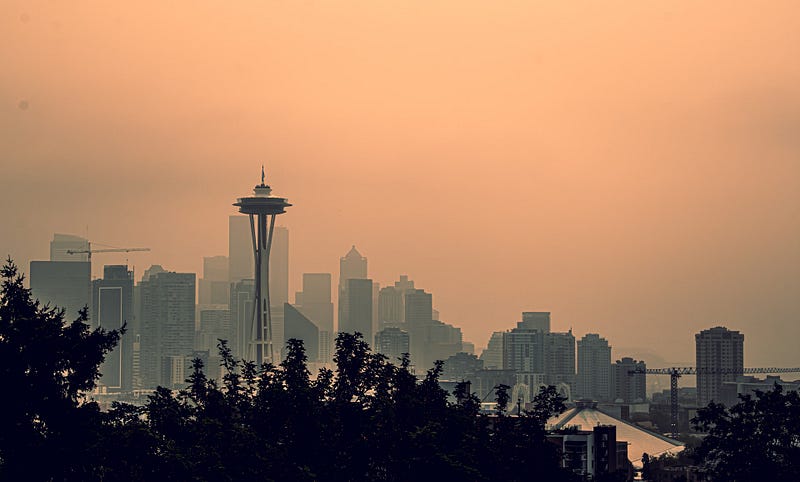Urgent Call for Climate Action: A World at the Brink
Written on
The Climate Emergency: A Call to Action
In the face of overwhelming challenges, Greta Thunberg's words resonate: we have "no world leaders on climate." This stark statement emphasizes a collective denial as we squabble over dwindling resources.

As Thunberg tirelessly advocates for a wake-up call, it's disheartening to note that pollution levels continue to rise rather than decrease. She speaks of crucial tipping points, impending storms, and the cascading consequences of starvation, famine, and extinction.
For years, environmental advocates have sounded alarms, yet only a few have truly listened. Thunberg points out that during 2020, the chaotic first year of the COVID-19 pandemic, the world invested nearly six trillion dollars into fossil fuel subsidies. We perpetuate a destructive cycle, feeding an insatiable beast that consumes life itself.
If this addiction were akin to heroin, the world would be in an uproar. Yet, the dual motivations behind our self-medication—avoiding pain and the profit-driven short-term mindset—mask the severity of our crisis.
Personal Reflections Amidst Global Turmoil
This past summer, my family's attempt to relocate to the Pacific Northwest was thwarted by a perfect storm of challenges: supply chain disruptions, natural disasters, and the ongoing impact of the pandemic. We faced a stark realization—stability seems elusive.
Now, I find myself returning to Hawaii to address the repercussions of flooding, invasive species, and the overwhelming waste we generate. A couple of years ago, I felt optimistic as Greta Thunberg emerged on the global stage, not as a savior but as a persistent voice urging us to heed scientific evidence and recognize our interconnectedness.
Despite her straightforward truth-telling, the response has often been ridicule and dismissal. Yet, in the battle against climate change, exhaustion is inevitable, but hope, cooperation, and innovation must prevail.
Understanding Our Disconnection from Nature
As an ecopsychologist, I understand that humanity evolved within nature, yet we are increasingly estranged from it. This disconnection manifests as cognitive dissonance, where our need for belonging collides with our destructive behaviors toward the biosphere.
The climate crisis is intertwined with issues of racial injustice, gender inequality, and colonial attitudes. Our dominance over nature mirrors these societal attitudes, leading to significant ecological disasters.
We over-consume, destroy habitats, and push other species to extinction. With a global population of eight billion, equitable resource distribution seems an insurmountable challenge.
The Interconnectedness of Our Struggles
Our collective problems—from wars to resource shortages—are all linked. The COVID-19 pandemic itself is a stark reminder of how our actions disrupt ecosystems, as seen with its origins related to wildlife interactions.
In 2021, the widespread effects of climate-related disasters underscored the urgency of our situation, coinciding with deforestation and the pressures of agriculture. As Greta and the scientific community reiterate, "everything has everything to do with everything."
Loud Voices, Quiet Actions
The media landscape often prioritizes sensationalism over substantive discussion. Perhaps we, too, need to amplify our voices, but not through outrage alone. Instead, we must advocate for logical solutions to foster a more just and sustainable world.
Rather than resorting to divisive rhetoric, we should unite around achievable goals, like reducing single-use plastics. History shows us that when there is collective will, change can happen overnight.
Engaging in Meaningful Change
Human denial is a formidable barrier, yet it is imperative that we recognize our shared responsibility. Astrophysicist Brian Cox reminds us that Earth is the only known home to intelligent life, and destroying it is not just profound—it is profoundly foolish.
Despite my cynicism, I believe we can influence our future for the better. The world we are crafting for future generations is a waste of our potential and creativity.
As the UN Climate Change Conference (COP26) approaches, the urgency of our situation weighs heavily. The ongoing struggle against climate change, however, is tempered by the hope that voices like Greta's inspire.
We must choose how many challenging days lie ahead and strive for a future rooted in human goodness and belonging to our planet.
Chapter 2: Voices of Change
In "THIS Verse Proves The End of The Age Is NOT What Most People Think | Matthew 24:4 With Jason Camacho," the discussion centers around the misconceptions surrounding the current climate crisis and how we can better understand our role in it.
Chapter 3: Transformation on the Horizon
"On The Brink Of Annihilation, A Sudden Change Comes Apparent, Lost Turns To Victory" explores the potential for significant transformation as we confront our collective challenges, inspiring hope amidst despair.